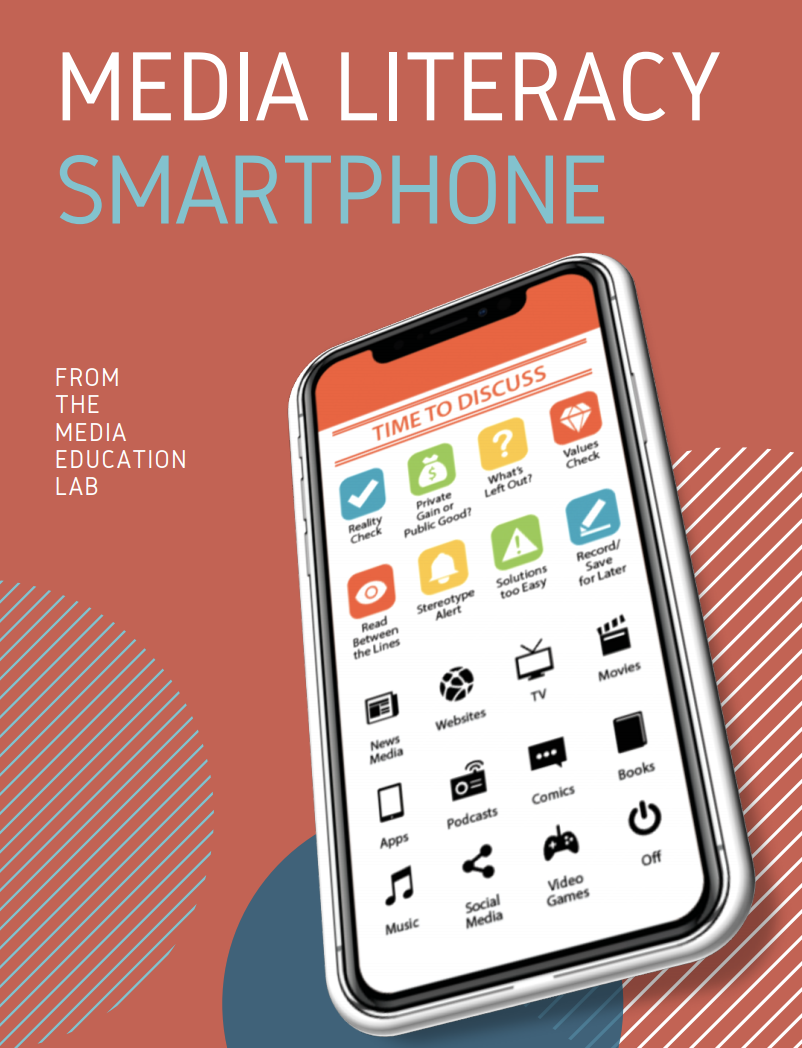Help students learn to ask questions about what they read, see, watch and listen to.
NEW!
 Learn how to use the Media Literacy Smartphone with learners of all ages! Download the free learning guide to bring the power of media literacy analysis to your learners!
Learn how to use the Media Literacy Smartphone with learners of all ages! Download the free learning guide to bring the power of media literacy analysis to your learners!
These easy-to-use cards, shaped exactly in the size of a smartphone, are available to educators for classroom use. You can use these simple paper cards to introduce a structured approach that helps students learn to critically analyze any media text --- web sites, books, advertising, news, TV shows, movies, video games, magazines and music. One side of the smartphone displays the various "apps" for analyzing a media text and the other side displays the "five critical questions" of media literacy developed by Renee Hobbs.
Pair the smart phone with the LOVE IT OR HATE IT cards for a dynamic and fun learning experience.
Classroom sets are available for purchase below. Price includes shipping and handling.
MULTIPLE LANGUAGES AVAILABLE
You can now purchase Media Literacy Smartphones in a number of languages, including English, Portuguese, Croatian, Romanian, Bulgarian, Dutch, Polish and more. Indicate your language preference when you order. For bulk orders or international shipping, email Renee Hobbs: hobbs@uri.edu.
PURCHASE A SET OF 200 SMARTPHONE CARDS
PRICE: $60 includes shipping to any place in the United States.
THE STORY OF THE REMOTE CONTROL
The media literacy remote control was created in 1993 when Renee Hobbs wanted to help her own students internalize the practice of "asking critical questions about what you read, watch, see and read." She created a sturdy and colorful paper card that uses a visual metaphor to introduce media literacy.
Using the remote control proved to be a fun and engaging activity for learners of all ages: by structuring the practice of critical analysis of media texts, it helps students learn.
Over the years, thousands of educators, students and their families have used the media literacy remote control to learn how to ask critical questions about what we watch, see and read. Learn more about how the new media literacy smartphone helps adults understand the pedagogical principles of media literacy.